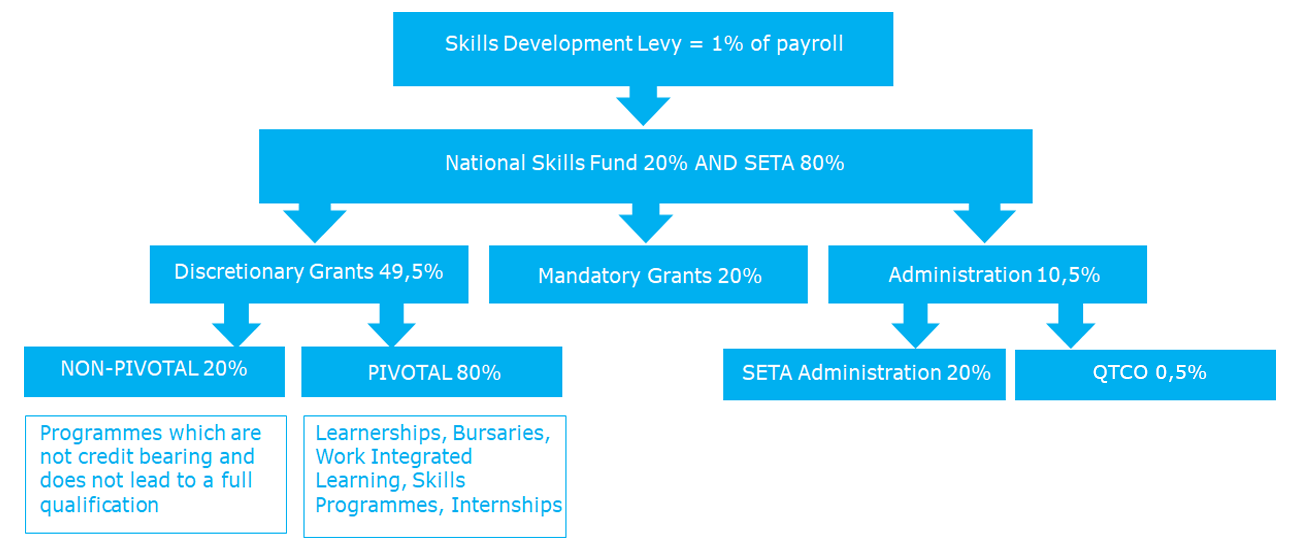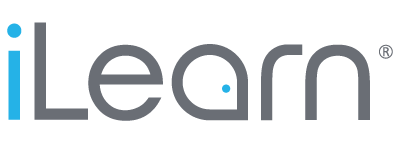
Turning Strategy into Action: How learnerships can add to your bottom line!
Companies with an annual payroll of over R500 000 must contribute 1% of their leviable payroll as a Skills Development Levy. Of this 1%, 80% is allocated to the Sector Education and Training Authorities (SETAs) while 20% is allocated to the National Skills Fund (NSF).
The amount which is paid to the SETAs is further divided and allocated to several different aspects within the SETAs:
49,5% goes to discretionary grants
20% goes to mandatory grants
10,5% goes to SETA administration.



As a company that timeously pays their SDLs – and submits their Annual Training Report (ATR) and Workplace Skills Plan (WSP) by 30 April every year – you are entitled to apply for both discretionary and mandatory grants from the SETA that you belong to.
WHAT IS A MANDATORY GRANT?
Employers who are in good standing with the SETA's that they belong to – regarding their SDLs and submission of their WSPs and ATRs – are entitled to claim back 20% of the total amount they have paid towards their SDL contributions throughout the entire year.
WHAT IS A DISCRETIONARY GRANT?
Employers are further able to apply for discretionary grants from their SETA. However, it is not guaranteed that these monies will be paid out as payment is at the sole discretion of the SETA based on the proposed training plans included in your Workplace Skills Plan for the year ahead. Discretionary grants can be applied for by submitting a letter of intent to the specific SETA.
Discretionary grants are allocated as follows:
- 80% is allocated to PIVOTAL (Professional, Vocational, Technical and Academic Learnings) programmes have typically been the preferred recipients for discretionary grants;
- 20% is allocated to non-PIVOTAL projects, or programmes that do not lead to a full qualification.
HOW TO REGISTER FOR SKILLS DEVELOPMENT LEVY
1. Register for SDL using an EMP101 form. The South African Revenue Service (SARS) will issue an EMP 103 form when your company has been registered.
2. If you already have an SDL number and your payroll is above R500 000 per annum, on receipt of your monthly SDL, SARS will issue you with an EMP213.
3. If you have a number, but your payroll dips below R500 000 per annum, you will issue a nil return.
BUSINESS INCENTIVES
Your company can earn several incentives in terms of tax and Broad-Based Black Economic Empowerment (B-BBEE).
S12H LEARNERSHIP TAX ALLOWANCE
In terms of S12H of the Income Tax Act, employers who have entered into a registered learnership agreement can apply for a tax deduction. Learnerships allow organisations to further benefit from a tax rebate of R80,000 per able-bodies learner, per year and R120,000 per PWD learner per year.
EMPLOYMENT TAX INCENTIVE
If you employ someone who, among others, are between 18 and 29, earns less than R6000 per month and was newly employed on or after 1 October 2013, you can apply for a reduction in the amount of PAYE that you need to pay for that employee.
B-BBEE POINTS
The B-BBEE scorecard comprises of five pillars in total, with the Skills Development pillar being a priority element. The sub-minimum requirement is 40% of the total weighting of points, inclusive of learnerships, but exclusive of bonus points for absorption. If you spend between 3 and 6% of your payroll on training initiatives, you will earn maximum skills development points.
